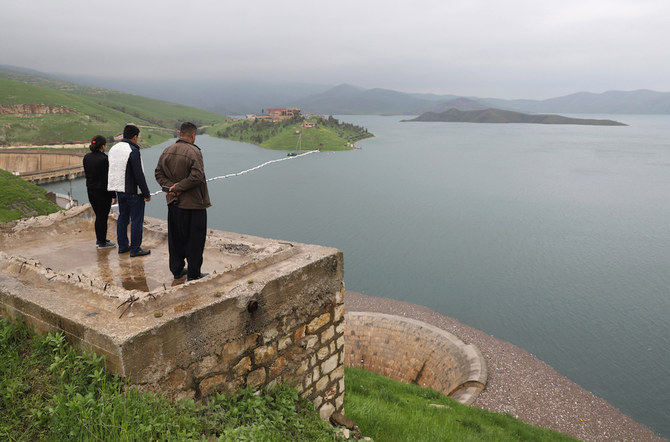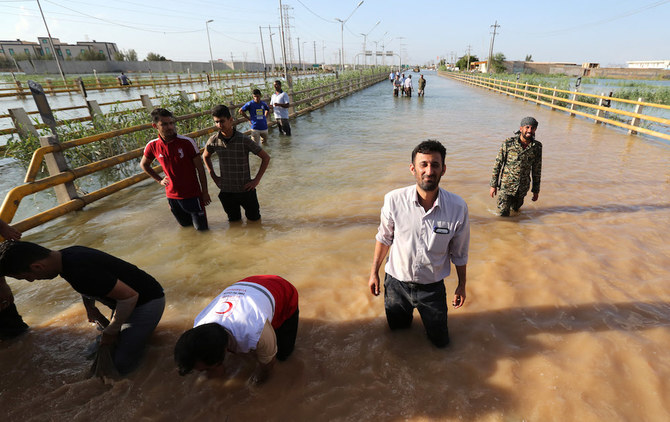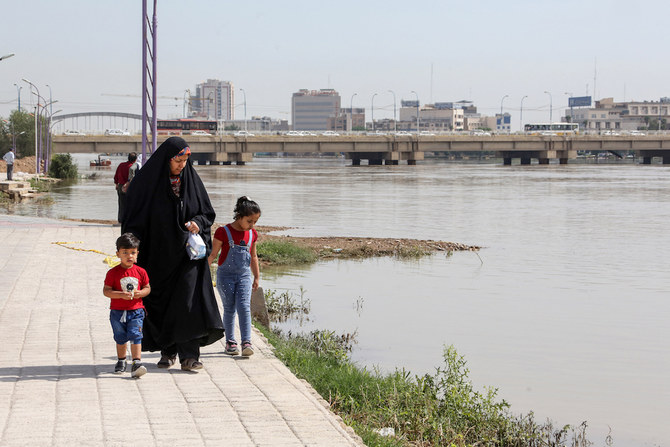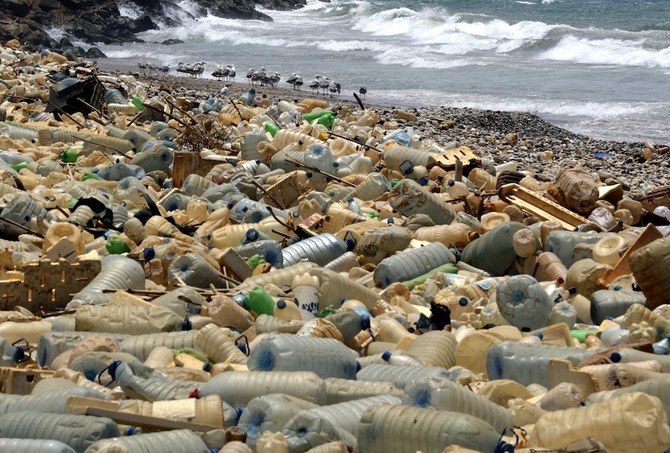NEW YORK CITY: A landmark UN study on climate has sounded a stark warning about the impending irreversible changes to the natural environment and the catastrophic consequences for humanity that a failure to act could entail.
In its report, released on Monday, the UN’s Intergovernmental Panel on Climate Change (IPCC), said: “Climate change is widespread, rapid and intensifying, and some trends are now irreversible.”
Among the approaching changes are the well-documented warming of the atmosphere, rising sea levels, severe and unpredictable weather and catastrophic damage to natural life on land and in the sea.
But one less acknowledged, but perhaps equally existential, effect of climate change is the rapid decline in the availability of fresh and drinkable water through groundwater reserves — and for the hot and arid countries of the Middle East, the threat is particularly acute.
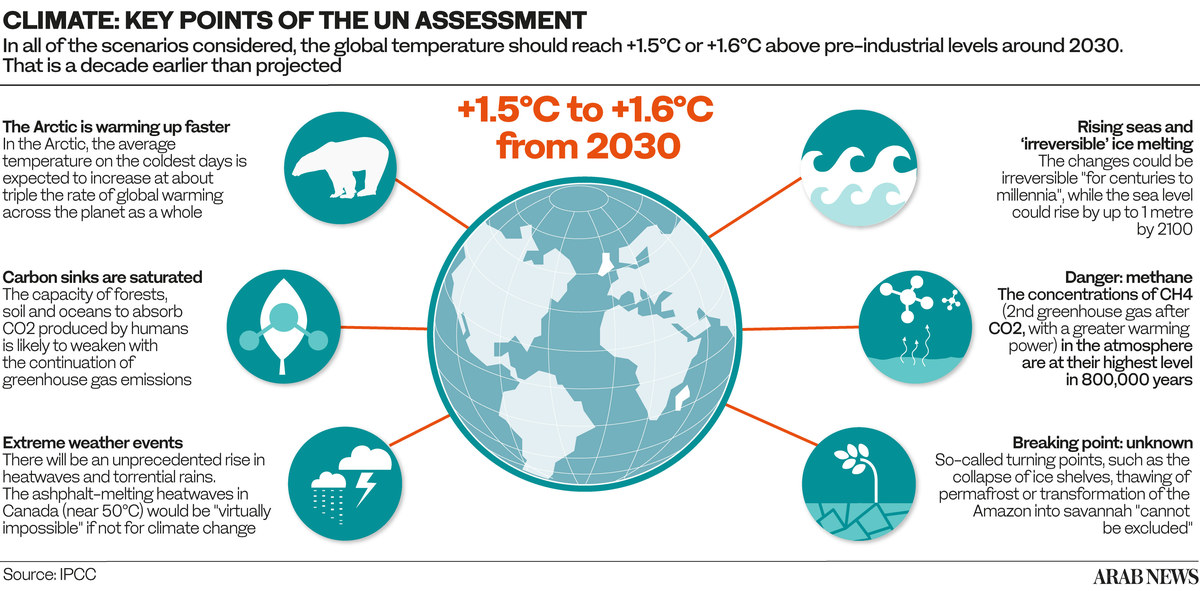
“Climate change is intensifying the natural production of water — the water cycle. This brings more intense rainfall and associated flooding, as well as more intense drought in many regions,” the UN report added.
In the Middle East, mismanagement of groundwater — particularly in Syria, Iraq, Turkey and Iran — could have catastrophic environmental and knock-on political consequences.
Groundwater is the term used for the massive reservoirs, known as aquifers, of fresh water available beneath the earth’s surface, which formed naturally over millions of years. Similar to the reservoirs that are drilled into for the extraction of oil, they are finite — and dwindling fast.
“Increasing global freshwater withdrawals, primarily associated with the expansion of irrigated agriculture in drylands, have led to global groundwater depletion,” said the UN report, adding that the massive extraction of groundwater was so severe that it was contributing to rising sea levels — and ushering in all the associated complications that came with it.
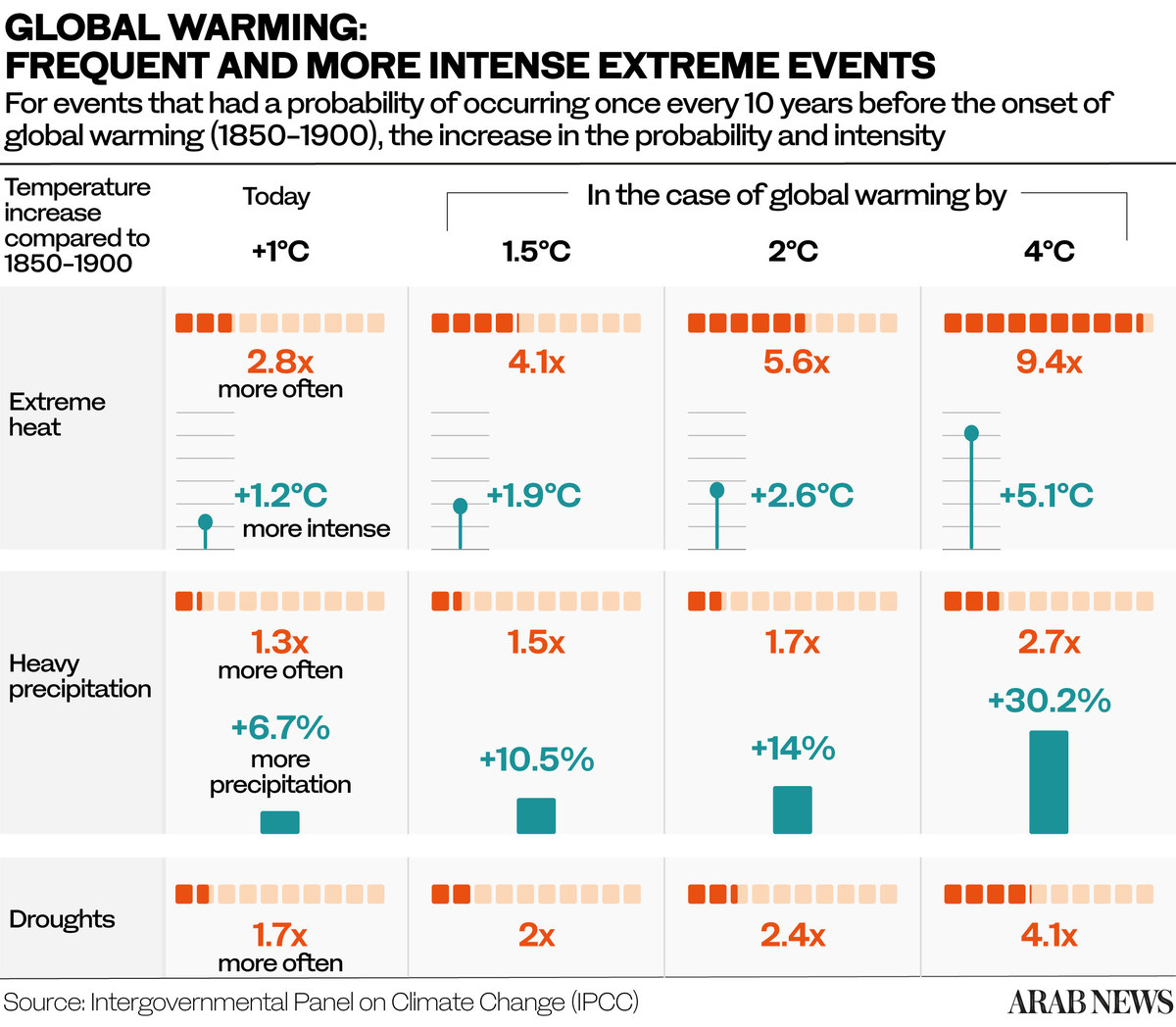
The consequences of groundwater extraction are more immediately obvious on a local level than globally.
Water scarcity, particularly in the Middle East, is not a new problem, and countries such as Saudi Arabia have been ramping up efforts to produce fresh water, for example through desalination plants that remove salt and other harmful materials from seawater to ultimately process it and make it safe to drink and useful in agriculture and everyday life.
While desalination does not come without its own challenges, it has alleviated reliance on groundwater and reduced the pressure of economic growth and human needs on fragile groundwater systems.
However, Jay Famiglietti, executive director at the Global Institute for Water Security and one of the senior authors of a study that the UN drew on for Monday’s report, told Arab News that such forward-thinking water management was scarce at best — or non-existent at worst — in Iran, Iraq, Syria and Turkey.
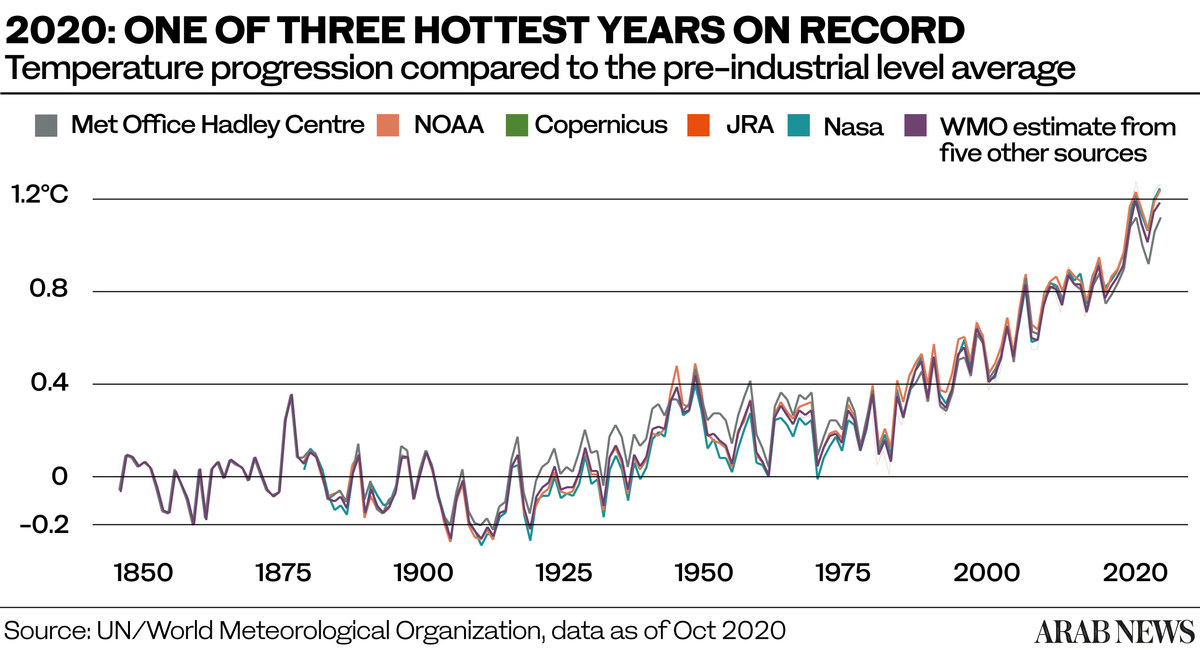
“About a third of the world’s population relies on groundwater as their primary water source,” he said, adding that groundwater usage “depends on your resources.” Where there was less rain and surface water available, such as rivers and lakes, states were more likely to pump it from deep reservoirs, many of which were too deep to be replenished with rainwater.
“Regions that have groundwater access — they use it. They should be balancing their surface water use with groundwater, but in fact they pull water out of the ground like it’s free money — literally. But this is the norm,” Famiglietti said.
He noted that a huge amount of groundwater was used for agriculture but pointed out that this should not be condemned. “We need to eat food.”
The only solution to the problem of managing the fast-dwindling supply of groundwater reserves with the need for food and economic growth, he added, was through international cooperation.

In Iran, Iraq, Syria and Turkey, this is absolutely critical because of their significant reliance on groundwater as a result of the short supply of surface water.
“These aquifers that are running out of water are so big now that they cross over political boundaries — whether they are international or intranational,” Famiglietti said, adding that the issue presented a political challenge as well as an opportunity for progressive cooperation.
“Imagine pulling together a group of Lebanon, Israel, Egypt, and Syria to cooperate — it’s really, really hard. But that is the only way forward. We have to switch what has been a vehicle, a trigger for conflict — water — for something that becomes a vehicle for collaboration and cooperation. Monday’s report makes that crystal clear,” he said.
The political pitfalls of failing to reform water management have recently become abundantly clear in Iran.
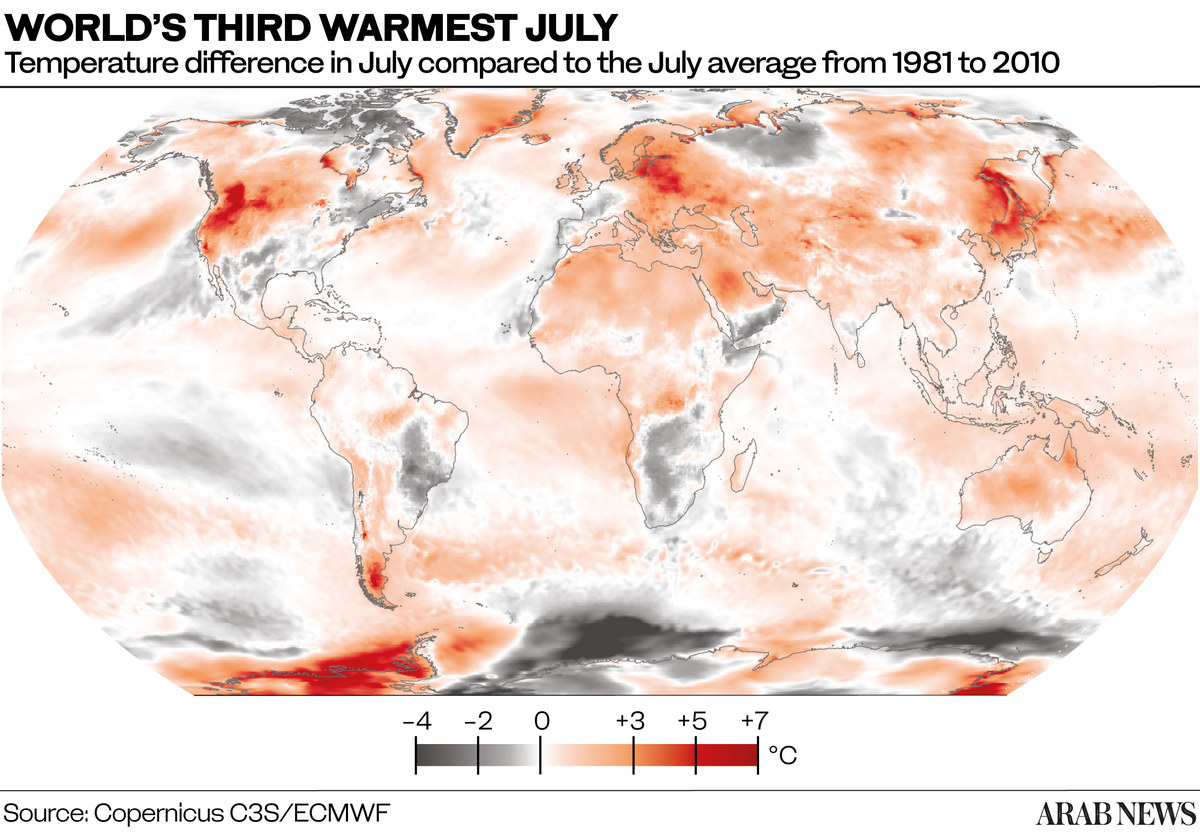
The country’s southwestern Khuzestan province was recently convulsed by weeks of violent protests spurred by a lack of clean drinking water. Human rights groups have verified that at least nine people were killed by security forces during the demonstrations.
A police officer was also killed, and the violence prompted a rare admission of guilt by then-President Hassan Rouhani.
People were incensed by the authorities’ mismanagement of their water, which pushed the province, the water-wealthiest in Iran in terms of natural resources, into what has now become known as a state of “water bankruptcy.”
Those protests that started because of water shortages in Khuzestan province quickly turned into anti-regime chants in Tehran — crystallizing the destabilizing potential of water mismanagement.
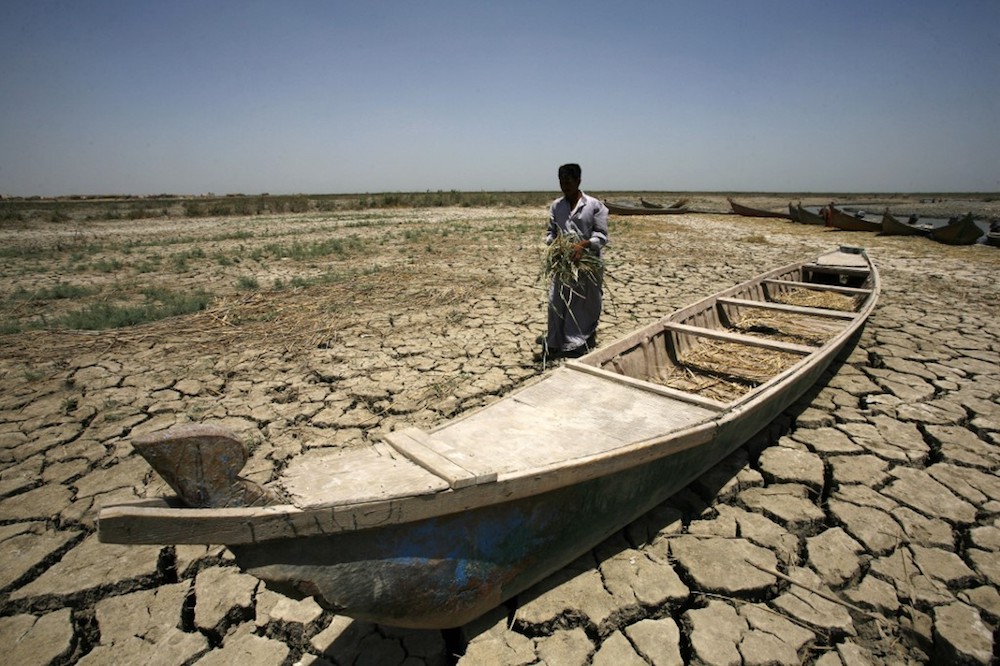
An Iraqi man walks past a canoe siting on dry, cracked earth in the Chibayish marshes near the southern Iraqi city of Nasiriyah. Marsh areas in southern Iraq have been affected since Daesh started closing the gates of a dam on the Euphrates River in the central city of Ramadi, which is under the group's control. (AFP/File Photo)
Ilan Berman, senior vice president of the American Foreign Policy Council, said: “In Iran in particular, the water crisis is a political one, because it is intimately tied to, and exacerbated by, longstanding regime neglect and mismanagement. That’s a situation that’s unlikely to change in the near future, unfortunately.”
Despite repeated warnings from the UN about climate catastrophe, as well as from Iranians who took to the streets in July, Berman said, Tehran did not appear to have taken on board the existential threat posed by water mismanagement.
“In fact, Iran seems to be headed in the opposite direction, because we’re now seeing a consolidation of the hardline clerical status quo around new President Ebrahim Raisi.
“All that makes Iran unlikely to pivot toward regional cooperation of the sort that the UN report envisions, or to invest in technologies, like desalination, that have helped other regional states, such as Saudi Arabia, turn the corner on their hydrological issues.”
-----------------
Twitter: @CHamillStewart


